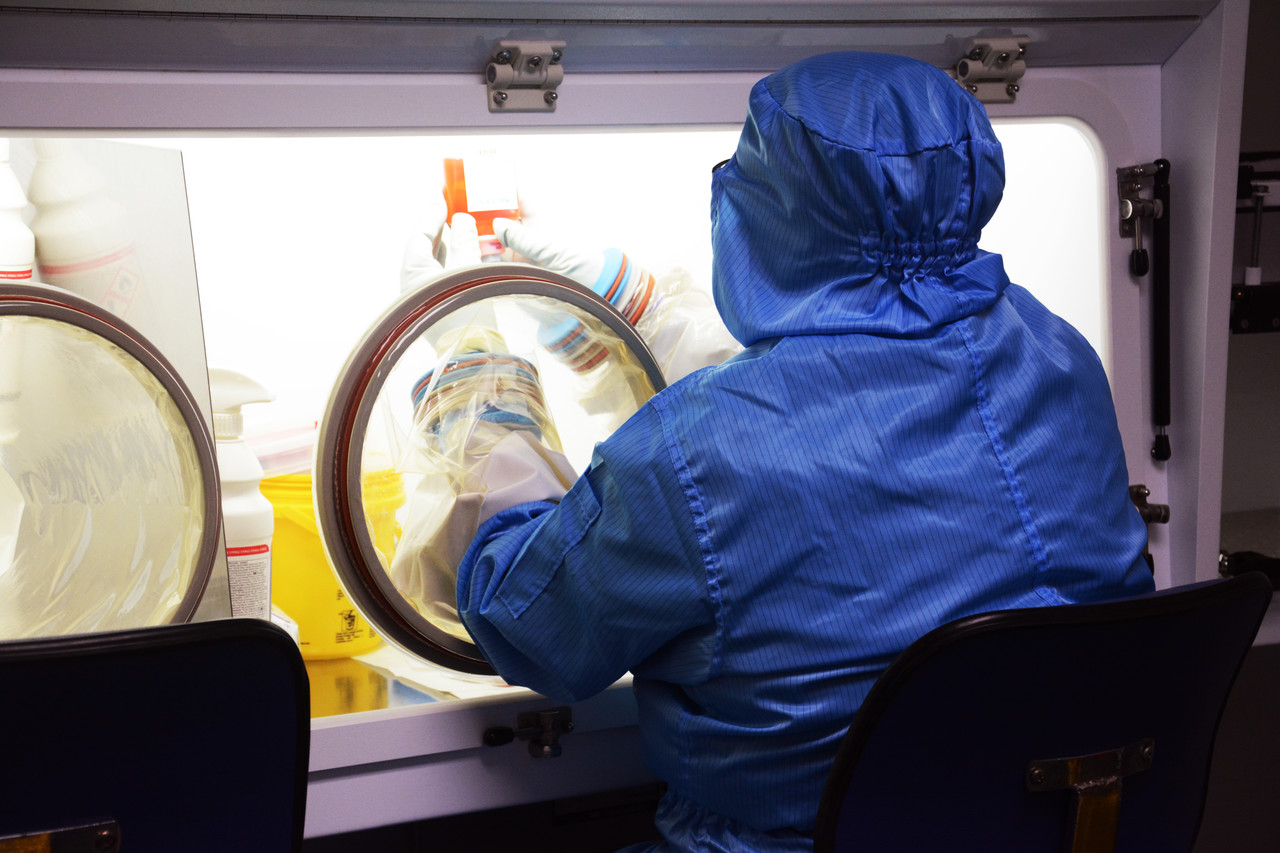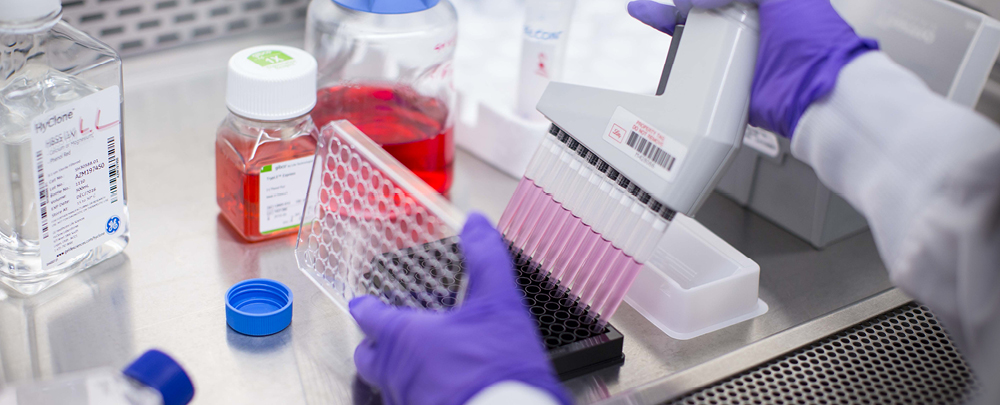Precision Medicine Could Replace Chemotherapy In The Future. What Is It & How Can It Help?
Doctors can genetically test tumours to find a suitable treatment, and even predict how likely the cancer will return.
When it comes to treating diseases like cancer, we are familiar with common treatments like chemotherapy, radiotherapy, and surgery.
However, health practitioners are realising that there is no one-size-fits-all treatment for cancer.
According to the National Cancer Society Malaysia, the types of treatment cancer patients get may vary based on the type of cancer and what stage it's in. No two cancer treatment plans are the same. Depending on the patient, each treatment plan is unique, and oncologists may even prescribe a combination of treatment plans.
This is where precision medicine comes in.
Instead of taking a 'trial and error' approach, precision medicine gives patients a personalised treatment that will work best for them.
So, how does precision medicine actually work?
Conventional cancer treatment, such as traditional chemotherapy, kills cancer cells while also damaging normal healthy cells. Previously, physicians would also use a 'trial and error' process to determine a suitable treatment and dosage, which often caused patients to suffer from additional side effects.
Thankfully, advancements in medicine have allowed for more precise and accurate therapy. Precision medicine looks at a patient's genes, behaviours, and environment to determine unique disease risks and treatments that will work best.
Targeted therapy, a type of precision medicine, uses drugs to target cancer cells without affecting normal cells — it stops or slows the spread of cancer by targeting cancer cells, and blocking them from replicating themselves. So far, only a few types of cancers are routinely treated with targeted therapy. Most doctors suggest to pair it with surgery, chemotherapy, radiotherapy, or hormone therapy.
1. Tumour profiling can help your doctor choose the best treatment
The Centers for Disease Control and Prevention explains that tumour profiling allows doctors to genetically test a tumour and choose a treatment that's most likely to work.
It can also predict how likely the cancer is to return, which helps doctors and patients decide on the type and intensity of treatment required.
2. Doctors can look at your DNA to prescribe a suitable drug and dose
Pharmacogenomic studies how medicine interacts with inherited genes. In simple terms, your DNA affects how your body responds to medications — a certain drug may work for you, but not someone else.
Based on pharmacogenomic tests, doctors may prescribe certain cancer patients with a lower dose of treatment, which is just as effective because of the person's genetic variation. This means he or she would get the same results, while having less severe side effects.
3. It is still an emerging and growing healthcare approach in Malaysia
Precision medicine is still a fairly new way of treating cancer in Malaysia. In an article by CodeBlue, health experts noted that Malaysia needs the right policy structures, public-private partnerships, and adequate investments for precision medicine to be widely available in the country.
Adapting precision medicine requires a whole paradigm shift. Doctors and nurses need to be educated on how to interpret test results. Besides that, developing a nationwide systemic monitoring of cancer patients will provide helpful data to diagnose and prescribe treatment for future patients.
4. Precision medicine is more costly than traditional medicine
Since precision medicine is personalised to the patient, a lot of data needs to be collected from the patient, including biomarker tests as well as family history reports. Currently, precision medicines are also more expensive to produce, which is why they are priced higher.
Nevertheless, spending on precision medicine could end up being more affordable in the long-run for cancer patients, especially if the treatment is successful.
5. Just as traditional drugs aren't a sure bet to cure cancer, precision medicines aren't always a permanent cure
As with any cancer treatment, precision medicine may not be the best solution for every cancer patient. While targeted treatment is tailored to the patient, it is still complex and does not guarantee success.
It is important to note that precision medicine may not always provide much benefit. In some cases, it may be effective at first, but cells may build resistance to the therapy after a while.
Before deciding on a treatment plan, you should discuss with your doctor on the possible results or side effects of each cancer treatment.
Moving forward, understanding how precision medicine works will be vital when it comes to cancer treatment.
Knowing this, Prudential Malaysia has partnered with AstraZeneca and Pantai Premier Pathology to improve access to precision medicine for cancer patients.
This first industry collaboration of its kind will pave the way for cancer patients to access genomic testing for a more accurate diagnosis of their cancer based on its genetic profile. Through this collaboration, cancer patients will financially have peace of mind and can look forward to improved treatment outcomes.
This is part of Prudential Malaysia's goal of helping to make precision medicine more accessible and affordable to cancer patients. Though the venture is an expensive one, the insurance company understands how important it is for patients to have access to this treatment option.
Mr. Lim Eng Seong of Prudential Assurance Malaysia Berhad said, "We are delighted to partner with AstraZeneca and Pantai Premier Pathology in this collaboration which synergises our efforts in educating and supporting cancer patients"
"Prudential Malaysia now extends our coverage to include genomic testing and precision medicine, giving our customers peace of mind that they can be in the best position to focus on their treatment and recovery.
"This coverage also allows physicians to prescribe clinically suitable treatments and tests from other pharmaceutical companies and laboratories. As their trusted partner in health and protection, we want our customers to face this battle with confidence," he added.
Ultimately, Prudential Malaysia is always listening, understanding, and delivering
In fact, Prudential Malaysia is catering to both new and existing customers, by providing coverage on clinically required precision medicine treatment for new and existing medical insurance plans without additional charges.
The company hopes that this transformational initiative will give cancer patients peace of mind, so that they can focus on recovery without worrying about costly treatment.
At the end of the day, Prudential Malaysia hopes to be the trusted life partner that supports you to live with confidence
Find out more about Prudential Malaysia's insurance plans on their website today.







